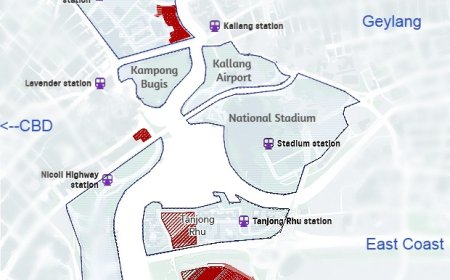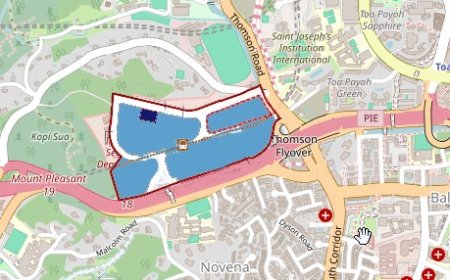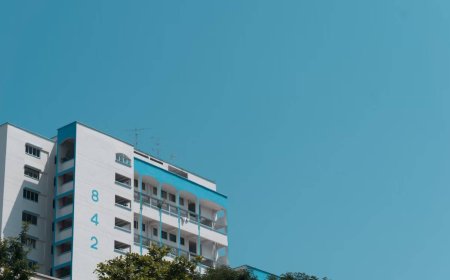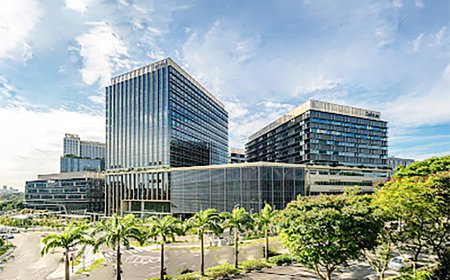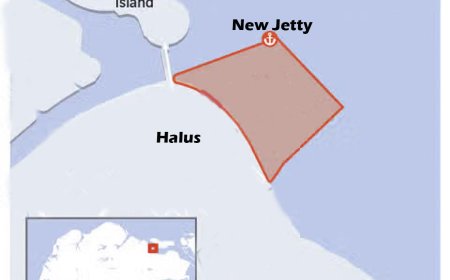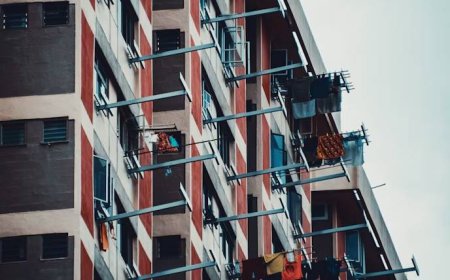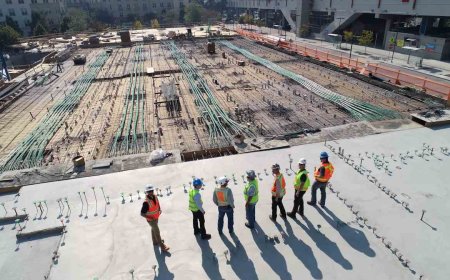Tax Avoidance Through Property 'Decoupling' Ruled Illegal by High Court
Learn about Singapore’s High Court ruling on property decoupling and tax avoidance. Discover the risks, legal implications, alternatives, and expert recommendations for homeowners and investors.

Property Decoupling in Singapore: High Court Ruling, Risks, and What Home Buyers Need to Know
Summary
A recent Singapore High Court ruling clarified that property decoupling — transferring property ownership shares between co-owners — is illegal if done solely to avoid taxes, particularly the Additional Buyer’s Stamp Duty (ABSD). While decoupling itself is not unlawful, artificial arrangements that lack commercial substance may amount to tax avoidance or even tax evasion.
This ruling carries significant implications for homeowners, investors, property agents, and lawyers who advise on real estate transactions.
What is Property Decoupling?
Decoupling refers to the transfer of one spouse’s or co-owner’s share in a property to the other, so that the outgoing party is considered a “non-owner” and can purchase another residential property without paying ABSD.
-
Legitimate Example: A spouse sells his/her share to the other spouse at market value, relinquishing all beneficial interest.
-
Illegal Example: A spouse transfers 1% ownership on paper but secretly retains beneficial ownership, later buying another property without ABSD.
The High Court’s Findings
-
A 99-to-1 ownership split between two individuals was scrutinized.
-
The arrangement was initially designed to facilitate decoupling for a future property purchase.
-
The Court ruled that while 99-to-1 holdings are legal, they become problematic if structured purely to avoid ABSD or stamp duty.
-
If beneficial ownership is secretly retained after a transfer, the arrangement may be deemed a sham transaction.
Tax Avoidance vs. Tax Evasion
| Aspect | Tax Avoidance | Tax Evasion |
|---|---|---|
| Definition | Using legal loopholes or artificial arrangements to reduce tax liability | Deliberately providing false or incomplete information to evade taxes |
| Legality | Not necessarily illegal, but can be struck down if “contrived or artificial” | Illegal and prosecutable |
| Example | Creating a 99-to-1 split with no real commercial substance | Declaring false ownership percentages to reduce stamp duty |
| Penalty | IRAS may disregard the arrangement, demand back taxes + penalties | Heavy fines, prosecution, possible imprisonment |
Risks of Improper Decoupling
-
Stamp Duty Underpayment – If IRAS rules that a joint owner misrepresented their share, duty must be recalculated.
-
ABSD Penalties – If a person buys a second property while secretly still owning the first, they may be liable for unpaid ABSD plus penalties.
-
Legal Disputes – Hidden arrangements often surface during disputes (e.g., relationship breakdowns).
-
Professional Liability – Lawyers advising on artificial decoupling schemes may face lawsuits from clients if IRAS takes enforcement action.
-
Reputational Damage – Buyers exposed for artificial arrangements risk being blacklisted in future transactions.
When Decoupling is Acceptable
✅ Outright transfer of ownership at fair market value.
✅ No secret agreements to retain beneficial ownership.
✅ Proper documentation with full disclosure to IRAS.
✅ Independent legal advice ensuring compliance with tax laws.
Expert Insights & Recommendations
-
Act in Good Faith: If you are transferring ownership, ensure the transfer is genuine and not just a “paper” move.
-
Consult Professionals Carefully: Choose lawyers and property agents who understand recent rulings.
-
Avoid Hidden Arrangements: Any side agreement (verbal or written) that undermines the declared transfer can be exposed in disputes.
-
Be Transparent with IRAS: Providing incomplete or misleading information will attract harsher penalties than disclosing upfront.
-
Long-Term Thinking: Consider whether decoupling truly fits your financial goals or whether alternatives like joint investment structures may work better.
Alternatives to Decoupling
| Alternative | Description | Benefits | Risks |
|---|---|---|---|
| Buying under one spouse’s name initially | Only one spouse holds ownership of the first property | Allows other spouse to remain eligible for ABSD-free purchase later | Limits financing capacity |
| Trust ownership | Property purchased under a trust structure | May allow flexibility in ownership planning | Complex, subject to regulatory scrutiny |
| Commercial properties | Buying non-residential properties not subject to ABSD | Avoids residential ABSD rules | Different risk profile & financing terms |
| Wait-and-hold strategy | Delaying purchase until finances or policies change | Reduces risk of breaching rules | May miss market opportunities |
Key Takeaways
-
Decoupling is legal, but only when conducted transparently and at arm’s length.
-
Sham transactions designed to avoid ABSD may amount to tax evasion.
-
Proper documentation and fair value transfers are essential safeguards.
-
Professional liability is real — lawyers and advisors must exercise caution.
-
Buyers should evaluate alternatives before attempting decoupling.
Frequently Asked Questions (FAQ)
-
What is property decoupling in Singapore?
Property decoupling is when one co-owner transfers their share of a property to another, often to allow one spouse to buy another property without ABSD. -
Is decoupling legal in Singapore?
Yes, but only if the transfer is genuine and not structured solely for tax avoidance. -
What makes a decoupling arrangement illegal?
If it lacks commercial substance, involves hidden ownership agreements, or misrepresents ownership percentages. -
What is a 99-to-1 property ownership structure?
It’s when two co-owners hold shares in a property at a 99% to 1% split, often used for decoupling. -
Can I still buy another property after decoupling?
Yes, but only if you no longer hold any beneficial interest in the first property. -
What happens if IRAS discovers an artificial decoupling scheme?
They can impose penalties, recover unpaid ABSD and stamp duty, and possibly prosecute. -
What’s the difference between tax avoidance and tax evasion?
Avoidance uses loopholes (not always illegal), while evasion involves deliberate false declarations (illegal). -
How can I decouple safely?
Ensure transfers are done at fair market value with no side agreements and full transparency to IRAS. -
Do I need a lawyer for decoupling?
Yes, professional advice is essential, but ensure the lawyer is up-to-date with recent rulings. -
What risks do lawyers face in decoupling cases?
They may be sued by clients if IRAS rejects the arrangement. -
Can unmarried couples decouple properties?
Yes, but the same rules apply—ownership transfers must be genuine and properly documented. -
Will decoupling always save money on ABSD?
Not always—if the transfer is deemed artificial, you could end up paying more due to penalties. -
What alternatives exist besides decoupling?
Buying under one spouse’s name, exploring trusts, or considering commercial property. -
Can IRAS investigate past transactions?
Yes, IRAS has the authority to review past property transfers and impose backdated penalties. -
What is the safest approach for property investors in Singapore?
Act in good faith, follow legal channels, and consult reliable professionals before making any transfers.
Algene Toh
Disclaimer: The information presented on BSR2.com is intended for general informational purposes only. It does not constitute legal, financial, investment, or real estate advice and should not be relied upon as such. While every effort has been made to ensure the accuracy, reliability, and completeness of the content at the time of publication, all data is derived from publicly available sources and may be subject to change without notice. BSR2.com makes no representations or warranties of any kind, express or implied, regarding the suitability, timeliness, or accuracy of the information provided for any specific purpose. Users are strongly encouraged to seek independent advice from qualified professionals before making any decisions based on the content found on this website. BSR2.com shall not be held liable for any loss, damage, or consequence, whether direct or indirect, arising from the use of or reliance on the information provided. The content is intended as a general guide and does not take into account individual circumstances.
What's Your Reaction?
 Like
0
Like
0
 Dislike
0
Dislike
0
 Love
0
Love
0
 Funny
0
Funny
0
 Angry
0
Angry
0
 Sad
0
Sad
0
 Wow
0
Wow
0

